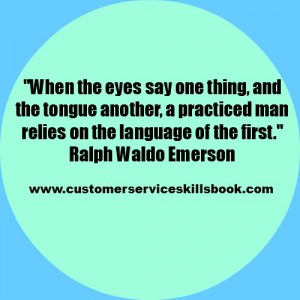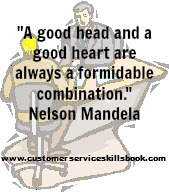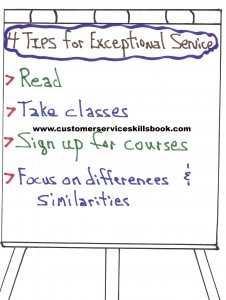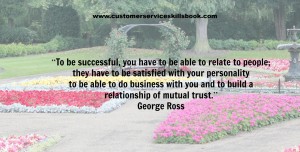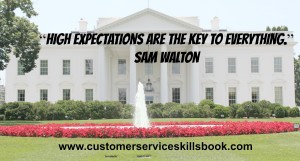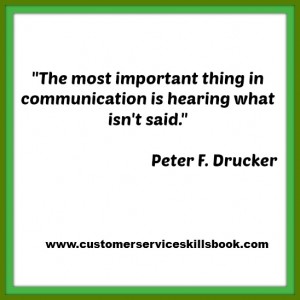Nonverbal Communication in Customer Service
The power of the eyes in communication has been known for centuries. This is demonstrated by a simple nonverbal communication quote by Ralph Waldo Emerson in the 19th century. Projecting what he was saying to today’s workplace… nonverbal communication in customer service can take precedent over spoken words during an interaction. This is an important lesson if you are a customer service representative. When you consciously send nonverbal cues when communicating with your customers, you have the power to strengthen customer and brand loyalty.
A well-used adage about the eyes being the windows of the soul effectively describes the power of eye contact when dealing with others in the workplace. You must be aware of the messages sent with your eyes and other nonverbal forms of communication when dealing with customers. Otherwise, you might inadvertently send messages that can damage the customer-provider relationship. This is especially true when communicating with someone from a culture other than your own. That is because each culture assigns a variety of meanings to different nonverbal communication cues (e.g. eye contact, gestures, facial expressions, and body posture).
Want to know more about sending and receiving messages effectively with your eyes and other forms of nonverbal communication in customer service, get copies of Customer Service Skills for Success and Please Every Customer: Delivering Stellar Customer Service Across Cultures. Also, search for nonverbal communication posts in this blog.
About Robert C. Lucas
Bob Lucas has been a trainer, presenter, customer service expert, and adult educator for over four decades. He has written hundreds of articles on training, writing, self-publishing, and workplace learning skills and issues. He is also an award-winning author who has written thirty-seven books on topics such as, writing, relationships, customer service, brain-based learning, and creative training strategies, interpersonal communication, diversity, and supervisory skills. Additionally, he has contributed articles, chapters, and activities to eighteen compilation books. Bob retired from the U.S. Marine Corps in 1991 after twenty-two years of active and reserve service.

